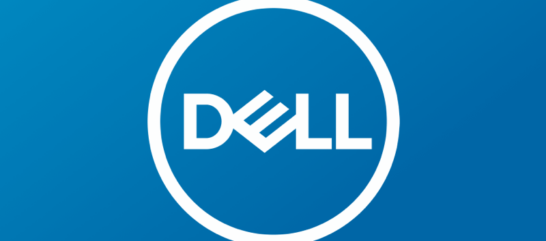When building your marketing strategy, an essential component to decide is what B2B social media platforms to prioritize.
Social media offers one of the most direct opportunities for business marketers to showcase their products, people, and priorities.
And posting consistently is crucial to success on social media, so you will need to be strategic with the brand channels that you use depending on your budget and resources.
You will want to choose the social networks that are most likely to connect with your target audience, provide the most value, and fit with your content marketing style.
And each platform is different and requires tailored content to really succeed. The brands that see the most success with social media marketing understand this and vary their posts on each platform.
This list of B2B social media platforms will help you evaluate which brand channels to utilize to grow your brand and drive ROI.
Best B2B Social Media Platforms
1. LinkedIn
Did you know that LinkedIn was launched in 2003 and is the oldest social networking platform still majorly used today?
With 722 million users, it isn’t the largest social network, but it is the most trusted. 73% of LinkedIn users agreed that the platform protects their data and privacy.
LinkedIn’s professional focus makes it the best opportunity for reaching decision makers for both networking and sharing content.
In fact, 97% of B2B marketers use LinkedIn for content marketing, and it ranks #1 among all social networks for content distribution.
Using the platform is a great way to get involved in conversations with industry leaders and buyers that are looking for recommendations on products and services.
Industry news, thought leadership articles, polls, and career advice are some of the most engaging posts on the platform.
LinkedIn has also been used effectively as a platform for employees to build personal brands and share business insights.
Getting involved with LinkedIn groups in your industry or areas where you have subject matter expertise is another effective way to generate leads.
2. Twitter
Twitter offers one of the best ways to engage in conversations with potential buyers for B2B brands.
With over 330 million monthly active users and 500 million tweets sent a day, Twitter is where to stay current and up-to-date in your industry.
B2B brands can use hashtags and trending topics to participate in active conversations and understand better what their audiences pain points and needs are.
The more that your company engages in personalized interactions, the more it will be viewed as a helpful and trusted brand, which will lead to more brand loyalty and retention.
Many B2B brands offer customer support accounts on Twitter and strengthens relationships with customers that can lead to more customer advocacy.
Twitter is also a great resource for social listening and gauging brand sentiment. You can search mentions and industry terms to see what your target audience is saying about your brand and identify content opportunities.
On Twitter, it is especially important to develop a distinct brand personality and show authenticity. Jargon and generic business terms are not going to cut it on a platform that thrives on more buzzworthy content.
Show off how your brand is unique and personable to stand out from competitors and generate engagement.
3. Facebook
Facebook is the most used social platform with 1.84 billion daily active users. If you are trying to reach a wide audience, Facebook is where you will find the most opportunity.
And it offers access to reach an important demographic for B2B marketers: business decision makers. Facebook found that business decision makers spend 74% more time on the platform than other people.
Facebook’s business pages are harder to grow organic reach on these days, but they can still drive brand awareness and set your business up as an authority in your space by using them to publish helpful advice, insights, and product news.
Video content is one of the best ways to get people engaging on Facebook. The platform has a few compelling options such as Facebook Live and Facebook Watch that users will interact with for longer periods of time on the service.
Like LinkedIn, Facebook Groups are often valuable sources for brands to get involved in conversations and people to connect directly to find recommendations and reviews.
4. YouTube
Video content has exploded as a medium for marketers. The number of businesses using video as a marketing tool has grown +41% since 2016.
YouTube is the most widely used B2B social media platform for video, and 87% of video marketers said it was an effective channel for them.
YouTube has over 2 billion monthly logged-in users, and people watch a billion hours of video every day on the platform.
Make sure that your YouTube channel is SEO optimized as that can help your rankings in Google searches.
Vlogs are a popular content type on YouTube for B2B brands, and you can easily repurpose previously published blog content in video format.
Demos of your product and how-to explainer videos are a great way to inform potential buyers of how your offerings look and feel, and you can even craft branded intros for all your videos. Current customers can also benefit from power user tip videos or on-demand webinars that make them feel supported at times that are convenient for them to view.
You could also share brand story videos or behind the scenes footage of your work culture if you are looking for video content ideas.
5. Instagram
Instagram is another top option for B2B marketers. Over 200 million people on Instagram visit at least one business page each day.
For Instagram, you will want to use your most visually appealing content. High quality photos, interesting infographics, and video perform best on the site – so get creative!
This is a great platform to feature all of the creative work that goes into promoting your B2B brand and taking people behind the scenes with videos of your office or team celebrations.
Many of the most engaging B2B brands on Instagram leverage user-generated content to share personalized and authentic content on the platform.
Instagram algorithms favor using the platform’s newwest features so a mix of Stories, Reels, and Photo Carousel content is your best bet to be seen by a wider set of users and grow brand awareness.
Getting people engaged with caption contests, polls, and hashtags will grow interactions on your page and show your brand’s creativity.
6. TikTok
While only 20% of marketers used TikTok in 2020, it is a quickly growing platform and is on track to have 1.2 billion monthly active users in 2021.
The popular short-form video app had a breakthrough year in 2020, and it is gaining share of people’s social media time.
If you have a marketing team that enjoys creating experimental and personalized content, TikTok is a great platform for B2B marketers to join and add to your B2B social media platform strategy.
Posting UGC and getting involved with trending challenges has the potential for brands to go viral – just be sure to keep your brand voice fun and engaging.
Does Social Media Work for B2B?
There is a myth in the business world that social media marketing only works for B2C brands. It should come as no surprise that we do not agree!
B2B is still selling products to people, and people are spending more time on social networks. If you want to reach your customers and build your brand, you need to be where they are getting news, having thoughtful conversations, and sharing recommendations. Social media is the most effective channel for B2B marketers.
For example, 84% of C-level and VP-level buyers are influenced by social media when purchasing according to IDG.
Social media should be a part of any B2B marketing strategy.
The Secret Sauce for B2B Social Media Platforms
As we’ve shared above, each platform has different qualities that make them unique and there may be certain ones that make the most sense as a brand fit. But one thing they all have in common is that they are great opportunities to get your employees involved and sharing.
Companies that encourage and equip their people to create and share on social media will have greater success with these strategies. They will increase reach for their posts and branded content, strengthen relationships that are more authentic and personalized, and generate more leads.
EveryoneSocial is an easy-to-use platform that connects employees to each other and to their social networks to leverage the benefits of employee advocacy programs.
Features like leaderboards help employees track how they compare to other people at the company and keep people motivated to share consistently about brands and create their own content.
No matter the platform, no matter the content, when employees are involved in the content creation and sharing, brands win.
Companies utilizing employees on social media:
- Teradata Expands Their Social Reach Over 800,000 With EveryoneSocial
- How American Family Insurance Empowers Their Brand Advocates Online
- Womble Bond Dickinson Activates 450+ Attorneys on EveryoneSocial
Interested in growing your brand’s B2B social media presence and building an internal community of advocates with EveryoneSocial? Learn more about us here.
















